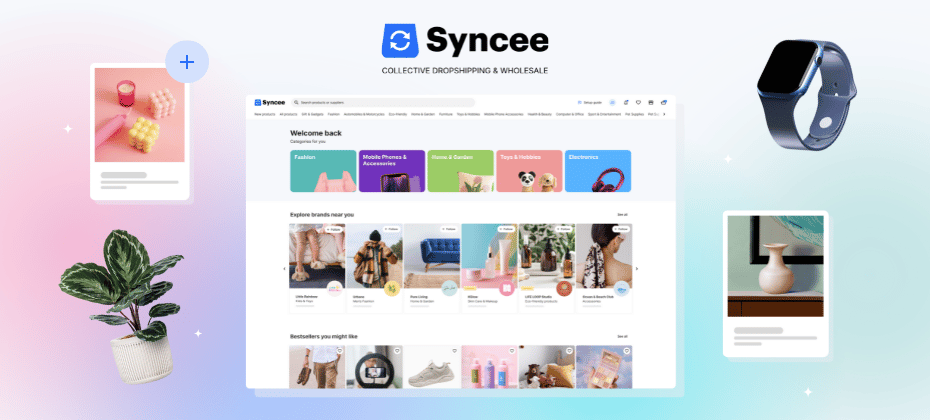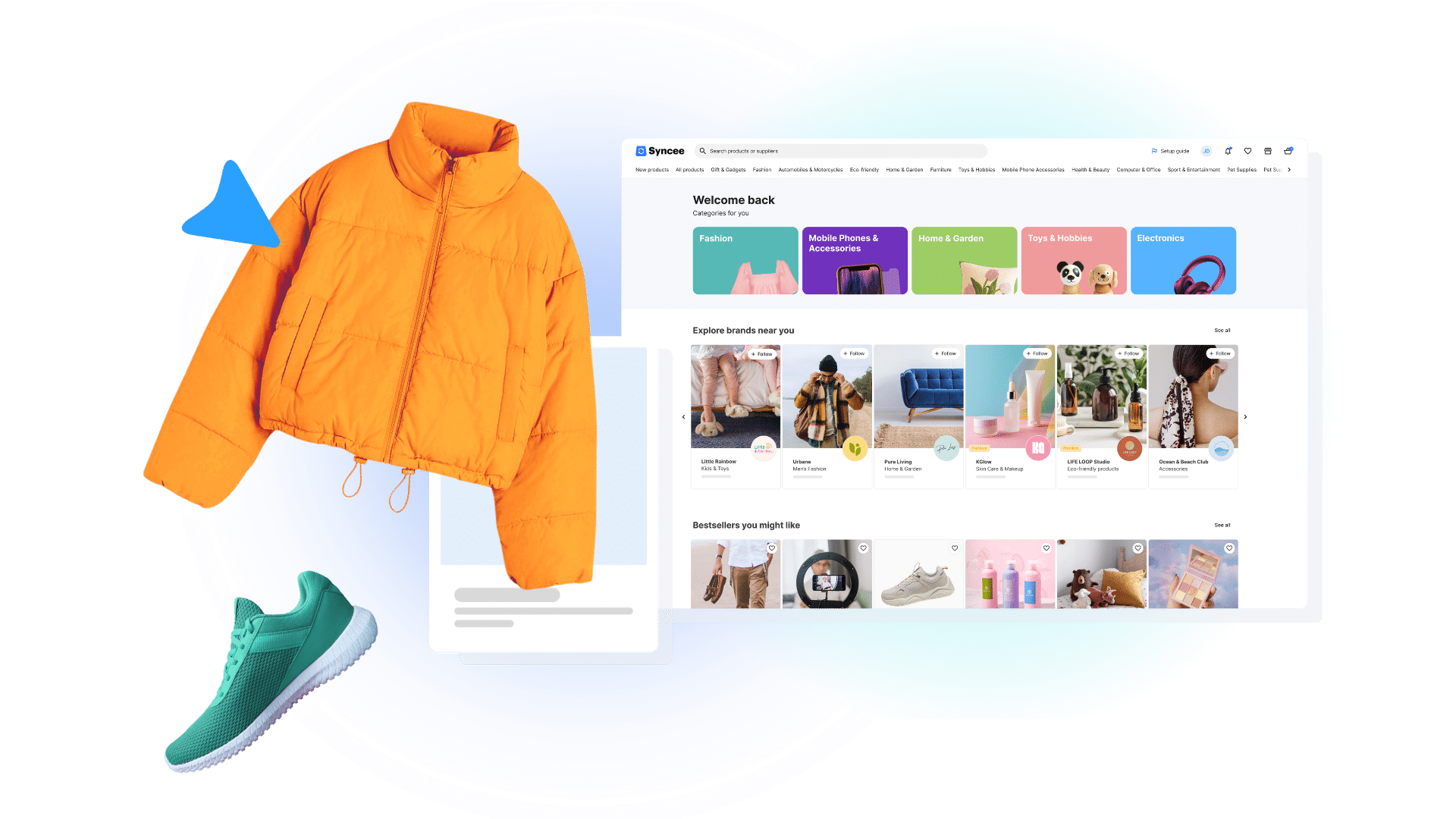As the global trade environment continues to change in 2025, many dropshippers are asking the same question: how will tariffs affect AliExpress dropshipping this year and beyond? With new import duties in the USA, changing regulations, and increasing pressure on international shipping, it’s important to understand how these changes might impact your business—and what you can do to stay competitive.
UPDATE – July 31, 2025
The de minimis exemption is over as of July 2025, with full implementation coming on August 29. All low-value imports into the US will now be subject to tariffs, ending the loophole that helped foreign ecommerce sellers ship duty-free. This move significantly affects AliExpress dropshipping, Temu, and similar platforms. With these US tariffs in August, local dropshipping is emerging as the more stable and scalable solution.
AliExpress has long been a popular choice for dropshippers sourcing products from China, but the landscape is shifting. Tariffs are making it harder and more expensive to rely on overseas suppliers, especially when selling to customers in countries like the United States. Whether you’re just starting out or already running a store, it’s worth reassessing your sourcing strategy to avoid surprises and maintain long-term growth.
New import duties, tighter US trade regulations, and growing instability in international shipping are reshaping the dropshipping landscape. If your online store relies on products shipped from overseas, you may be walking on thin ice. The days of depending solely on AliExpress are quickly fading. It’s time to think local.

What Are Tariffs, and Why Do They Matter?
If you’re wondering, will tariffs affect AliExpress dropshipping in the long run? The answer will be yes. Tariffs are taxes placed on imported goods by governments. Their purpose is to protect domestic industries and manage global trade. But for dropshipping businesses, tariffs can quickly turn into unexpected costs that cut into profit margins and complicate logistics.
When tariffs affect AliExpress, it becomes harder to:
- Keep product prices low
- Deliver orders on time
- Predict supply chain stability
And in 2025, these issues are more relevant than ever—especially for sellers targeting markets like the USA, where trade policies are becoming stricter.
>> Read more about recent tariff changes and more details here.
How Will Tariffs Affect AliExpress Dropshipping?
The question “how will tariffs affect AliExpress dropshipping” has become more urgent in 2025 than ever before. In recent months, the U.S. government has introduced additional duties on many Chinese imports, which directly impact common AliExpress product categories. Dropshippers who previously built profitable businesses on low-margin products from China are now seeing their profits disappear.
Even worse, these new tariffs come with unpredictable updates. One month your products might ship tariff-free; the next, you’re hit with a high percentage charge at customs. This level of instability makes long-term planning and scaling incredibly difficult. If you’re asking how will tariffs affect AliExpress dropshipping, understand that it’s not just about costs—it’s about the uncertainty they bring.
In 2025, tariffs are stricter than ever before. Trade tensions between China and the U.S. remain high, and new regulations are being enforced more aggressively. That means more delays, more fees, and more headaches—especially for AliExpress dropshippers.
Here’s how tariffs affect AliExpress dropshipping directly:

1. Rising Costs Due to Import Duties
Tariffs directly raise the cost of importing goods from AliExpress. Products that once had competitive pricing now come with additional fees at customs, which can eat into profits or force price hikes. What once seemed like a $5 product will cost you more than double after duties, VAT, and clearance fees. Suddenly, those “cheap” prices from AliExpress don’t look so attractive.
2. Shipping Delays and Uncertainty
Increased customs scrutiny and stricter regulations often mean slower delivery. And in today’s fast-paced ecommerce world, long shipping times can turn potential customers away. Orders that used to arrive in 2–4 weeks may now take longer—if they even get through customs at all.
3. Product Category Limitations
Some product types—like electronics, fashion items, and household goods—are more affected by tariffs than others. Depending on your niche, you could see shrinking margins or disrupted supply lines.
4. Unpredictable Availability
AliExpress listings can change frequently. With growing trade tensions and shifting regulations, products may suddenly become unavailable or more expensive, leaving your store vulnerable.
So, to answer the question directly: yes, tariffs affect AliExpress dropshipping, and they’re only becoming a bigger threat in 2025.

The Old Way of Dropshipping Is Dying
Let’s be honest: the traditional AliExpress model of dropshipping is outdated. Long shipping times, uncertain product quality, poor communication, and now tariffs—all these factors are creating massive friction. Sellers who ignore these red flags will likely struggle to grow or even sustain their stores in 2025.
The market has matured, and customer expectations have evolved. Shoppers want fast, reliable, and high-quality service. How will tariffs affect AliExpress dropshipping businesses that can’t keep up? With declining customer trust, lower conversion rates, and more chargebacks.
The era of low-quality product listings, 3-week shipping times, and vague supplier contacts is coming to a close. It’s time to move on from outdated sourcing strategies and focus on building a brand that lasts.
Dropshipping Without Borders? Not Anymore.
The dream of borderless ecommerce is fading as tariffs create invisible walls around major markets. While it once made sense to order from wherever was cheapest, this strategy no longer works.
How will tariffs affect AliExpress dropshipping businesses that rely on cross-border trade? Here’s how:
- Additional documentation may now be required at customs
- Tariffs can be applied even to small orders
- Unclear shipping labels may delay or even return packages
- Surprise costs lead to refund requests and angry customers
This complexity is too much for solo entrepreneurs or small teams to handle. It’s not scalable, and it’s not sustainable.
A Smarter Strategy: Work with USA Suppliers
Rather than trying to manage all the risks and costs of international shipping, many store owners are turning to local suppliers based in the United States. You can connect with them easily through Syncee, a leading dropshipping and wholesale marketplace that helps you build a more reliable, scalable business.
Benefits of working with local USA suppliers:
- No import tariffs: When products are shipped within the US, you avoid all the customs fees and import taxes that make international sourcing a nightmare.
- Fast delivery: Orders arrive in 2–5 business days, not weeks.
- Reliable quality: Products are typically higher in quality and arrive with professional packaging.
- Better customer service: Easier returns, refunds, and communication with suppliers.
- Higher customer satisfaction: Faster delivery and better product experience lead to happier customers and better reviews.
In short, you’ll avoid the problems that come when tariffs affect AliExpress, and instead offer your customers a faster, smoother shopping experience. By using a platform like Syncee, you can connect with verified US suppliers in just a few clicks—and ditch the uncertainty of AliExpress.

A Solution for Modern Dropshippers
Syncee is a B2B collective dropshipping and wholesale marketplace that connects store owners with vetted dropshipping and wholesale suppliers—many of them based in the USA. Whether you’re looking for fashion, electronics, pet products, home decor, or more, you’ll find reliable partners with fast shipping and high-quality stock.
Here’s how Syncee helps when tariffs affect AliExpress dropshipping:
- No more guessing which products will get stuck at customs.
- See up-to-date product data and shipping times from local suppliers.
- Avoid the instability and risk of sourcing from unknown international sellers.
You don’t need to rebuild your store from scratch. Just switch your sourcing strategy—and Syncee gives you the tools to do exactly that.
How to Future-Proof Your Dropshipping Business
If you’re still asking, “how will tariffs affect AliExpress dropshipping,” the answer should motivate you to act now as businesses and consumers both worry about todays ecommerce news. Here’s your playbook:
1. Reconsider Your Sourcing Strategy
If most of your products are coming from AliExpress, now’s the time to explore alternatives. Even if the prices seem low upfront, additional costs and delays are likely to harm your bottom line in the long run.
2. Use Syncee to Connect with Local Suppliers
With Syncee, you can browse premium dropshipping products from US-based suppliers across a wide range of categories. These products ship quickly, and you don’t have to worry about import duties or long customs delays.
3. Focus on the Customer Experience
By working with local suppliers, you’ll drastically improve delivery times, product quality, and customer satisfaction, leading to more repeat buyers and better reviews.
Final Thoughts
While tariffs are creating real challenges for international dropshipping, they also highlight an important opportunity: the chance to shift toward a more sustainable and reliable business model. If you’ve been wondering how tariffs affect AliExpress, and how tariffs affect dropshipping, the answer is clear—they add costs, slow things down, and make your store harder to manage.
Instead of trying to navigate an increasingly complex global supply chain, take a proactive step forward. Use Syncee to work with local USA suppliers and build a stronger, more competitive store for 2025 and beyond.
Frequently Asked Questions
Will tariffs affect AliExpress dropshipping profits?
Yes. Tariffs affect AliExpress, they increase import costs, which reduces your profit margins or forces you to raise prices—hurting your competitiveness.
What’s the best way to avoid tariff issues?
Switch to domestic suppliers. Platforms like Syncee help you connect with reliable US-based partners so you can keep your business running smoothly without worrying about tariffs.
Will switching from AliExpress help with shipping speed?
Absolutely. Products shipped from local warehouses typically arrive within 2–5 days—much faster than the 2–4 weeks often required for AliExpress orders.
Is Syncee only for USA suppliers?
No, Syncee features global suppliers too—but if you’re in the USA or selling to US customers, using US-based suppliers is a powerful way to reduce risks related to tariffs and shipping times.















